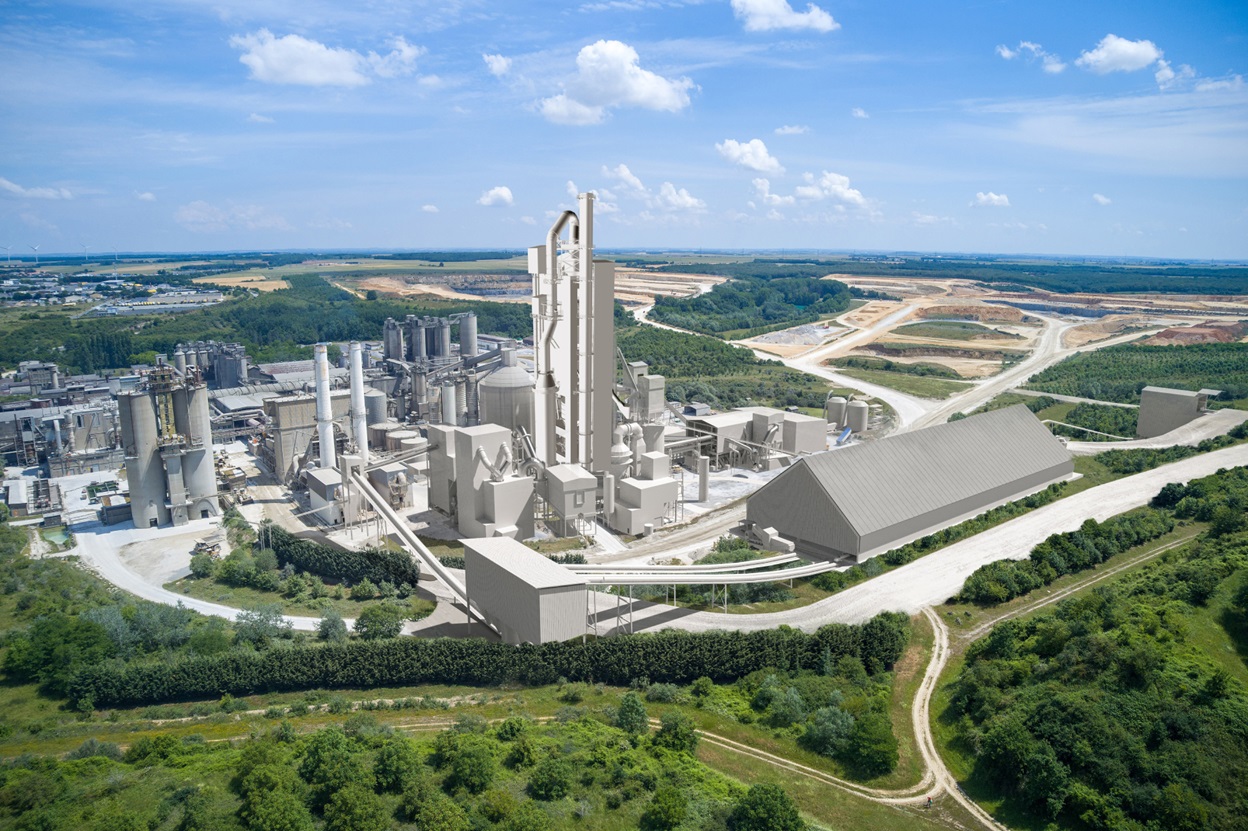
The AirvaultGOCO₂ project, with a planned capture capacity of around 1 million tonnes annually, is part of the GOCO₂ initiative to decarbonise the West of France.
Dr Dominik von Achten, chairman of the managing board of Heidelberg Materials, said: "We started an ambitious modernisation programme for our French sites several years ago, with a planned investment of more than €400 million. With the integration of AirvaultGOCO₂, we are now adding a cutting-edge project in the field of carbon capture to our previous efforts, which will enable a further, massive reduction of Heidelberg Materials' carbon footprint in France."
The Airvault modernisation project is currently under construction. This includes replacing the two current semi-dry firing lines with a new dry line, including a pre-calciner with a capacity of 4,000 tonnes per day. In future, almost 90% of the plant's energy demand will be covered by alternative fuels. The project will also reduce the electricity consumption per tonne of cement by 10%. In addition, the proportion of clinker in the cement will be lowered. Together, these measures will reduce the carbon footprint of the cement produced at the Airvault plant by almost 30% compared to current production.
"Our approach in Airvault is a perfect example of Heidelberg Materials' strategy to implement dedicated carbon reduction roadmaps," said Dr Nicola Kimm, chief sustainability officer and managing board member." We are taking every possible step to reduce CO₂ emissions: Phasing out fossil fuels, reducing the clinker content of our cements, and improving energy efficiency. To mitigate the remaining residual emissions, we rely on CCUS – as part of an integrated scheme and with our strong partners in GOCO₂."
AirvaultGOCO₂ is part of the GOCO₂ initiative launched in July 2023, an investment programme to capture CO₂ at industrial sites and transport it to geological storage sites for permanent storage. The emissions, including the CO₂ captured in Airvault, will be transported by pipeline to the coastal town of Saint-Nazaire and then by ship to storage wells under the North Sea. The biogenic part of the captured CO₂, i.e. the part corresponding to the emissions from the combustion of biomass, is to be used for the production of e-fuels, which are essential for sustainable transport by air and sea. Subject to the granting of public subsidies and the various regulatory approvals required for implementation, the aim is to capture the first tonnes of CO₂ in Airvault in 2030.













